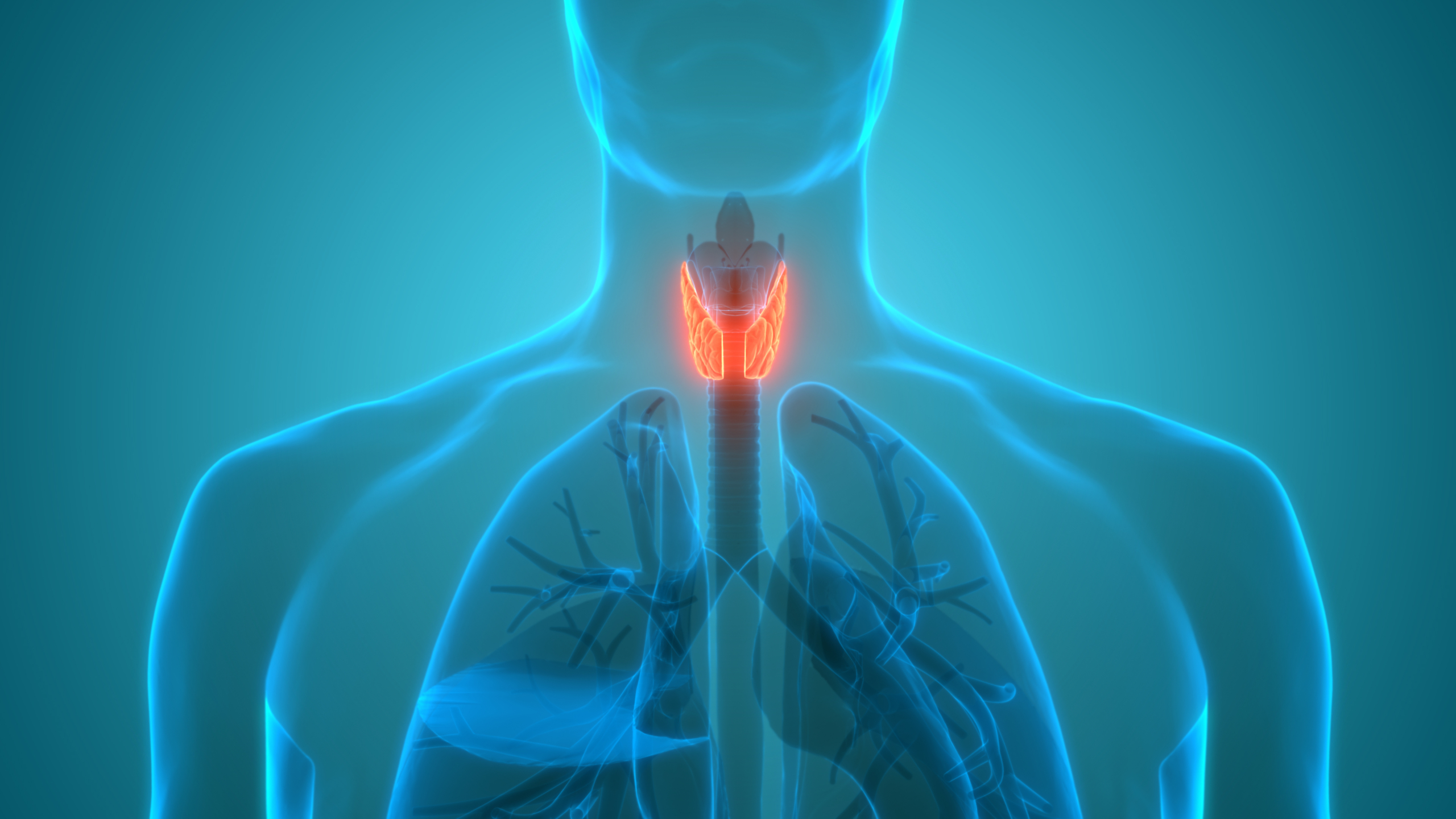Here is the all-too-common scenario. A patient is feeling tired, putting on weight easily, and may feel down mentally and emotionally. The patient goes to their doctor and has a general blood test done. The results show hypothyroidism, which is low thyroid. The patient wonders how in the world they ended up having hypothyroidism.
Medical research tells us that about 85% of adult cases of hypothyroidism are caused by an autoimmune disease, where the immune system attacks thyroid cells and causes inflammation and destruction of thyroid tissue. As a result, the thyroid gland may not be able to produce enough thyroid.
24 million people in the United States have an autoimmune disease. There are approximately 80 known autoimmune diseases, with autoimmune thyroiditis (meaning the immune system acts against its own tissue and causes inflammation) being one of the most common. It is the most common cause of hypothyroidism in the United States in people older than 6 years of age. Autoimmune thyroiditis is known to affect up to 15% of the world’s population. Also, this condition is up to 10 times more common in women and tends to run in families (genetic susceptibility). In addition, there is a mildly increased risk of thyroid cancer for those with this autoimmune disease.
The Discovery of Autoimmune Thyroid Disease
The more common term used for autoimmune thyroiditis is Hashimoto’s Thyroiditis (HT). Dr. Hashimoto was a Japanese surgeon who was trained in the analysis of thyroid disease. In 1912, he analyzed the thyroid tissue of patients he had operated on and noticed the accumulation of immune cells known as lymphocytes and damaged tissues. Then in 1956, researchers from Middlesex Hospital, London, identified antibodies to the thyroid gland with blood testing. Following these discoveries, the concept of organ-specific autoimmune disease, including HT, was recognized. Dr. Hashimoto’s contribution was not recognized until an article about autoimmune thyroiditis was published in the famous medical journal known as The Lancet. This was when Dr. Hashimoto’s discovery became accepted worldwide and the term Hashimoto’s disease.
Signs and Symptoms of Hashimoto’s Thyroiditis
The signs and symptoms of HT may start before lab testing identifies the problem. Early symptoms may include:
Fatigue
Constipation
Dry skin
Weight gain
More advanced symptoms that can occur due to the hypothyroidism that occurs may include:
Cold intolerance
Voice hoarseness
Pressure symptoms in the neck from thyroid enlargement
Slowed movement
Loss of energy
Decreased sweating
Mild nerve deafness
Peripheral neuropathy
Dementia and other psychiatric disturbances
Memory loss
Joint pains and muscle cramps
Hair loss Menstrual irregularities
Sleep apnea and daytime somnolence
Symmetrically enlarged thyroid due to lymphocyte infiltration and tissue fibrosis
Testing for Hashimoto’s
When a patient is suspected of having HT, the following blood tests are used:
Thyroid-stimulating hormone (TSH) levels- levels are raised in hypothyroidism due to HT.
Low total T4 or Free T4 level in the presence of an elevated TSH level further confirms the diagnosis of primary hypothyroidism. Total T3 or Free T3 levels may also be low.
The presence of anti-TPO (anti-thyroid peroxidase) and anti-Tg (anti-thyroglobulin) antibodies helps to pinpoint HT as the cause of hypothyroidism.
Thyroid ultrasound can be used to identify features of HT and other causes of thyroid abnormalities.
Fine needle aspiration (biopsy) is used to definitively identify HT or other conditions such as thyroid growths and thyroid cancer.
What Your Doctor May Not Tell You About Preventing and Treating HT
Mainstream doctors wait until a patient has hypothyroidism before treatment is started. Thyroid antibodies may be present years before one develops hypothyroidism. Therefore, it is important to screen people for HT, especially if there is a family history.
If thyroid antibodies are present, there are nutritional therapies shown to reduce the levels. For example, a gluten-free diet has been shown in research to reduce thyroid autoantibodies. Also, there have been studies demonstrating that the combination of the trace mineral selenium (selenomethionine (83 mcg) + nutrient myo-inositol (600 mg) has been shown to reduce thyroid autoantibodies (thyroid peroxidase and thyroglobulin) and improve thyroid hormone levels for patients with HT. We use a powdered version of myo-inositol at our clinic that requires only a small amount every day to reach the therapeutic amount. We usually recommend selenium as part of our Supreme multi formulation.
Also, Vitamin B12 and Vitamin D deficiencies are associated with HT. These can easily be tested for with blood tests and corrected with diet and supplementation.
Prescription thyroid replacement for people with hypothyroidism can also reduce antibodies. Of course, I prefer the use of bioidentical thyroid and not synthetic thyroid as most doctors prescribe.
Improving the gut microbiome with diet (plant foods, cultured foods, high fiber) and prebiotic and probiotic supplements is always important for the long-term treatment of autoimmunity.

Dr. Mark Stengler NMD is a bestselling author in private practice in Encinitas, California, at the
Stengler Center for Integrative Medicine. His weekly newsletter Dr. Stengler’s Health
Breakthroughs, is available at www.Americasnaturaldoctor.com
Aktaş H. Vitamin B12 and Vitamin D Levels in Patients with Autoimmune Hypothyroidism and Their Correlation with Anti-Thyroid Peroxidase Antibodies. Medical Principles and Practice. 2020;29(4):364-370. doi:10.1159/000505094
Hiromatsu Y, Satoh H, Amino N. Hashimoto’s Thyroiditis: History and Future Outlook. Hormones. 2013;12(1):12-18. doi:10.1007/bf03401282
Krysiak R, Szkróbka W, Okopień B. The Effect of Gluten-Free Diet on Thyroid Autoimmunity in Drug-Naïve Women with Hashimoto’s Thyroiditis: A Pilot Study. Experimental and Clinical Endocrinology & Diabetes. 2019;127(07):417-422. doi:10.1055/a-0653-7108
Lee S, Griffing G. Hashimoto Thyroiditis: Practice Essentials, Background, Etiology. Emedicine.medscape.com. https://emedicine.medscape.com/article/120937-overview. Published 2020.
Nordio M, Basciani S. Myo-inositol plus selenium supplementation restores euthyroid state in Hashimoto’s patients with subclinical hypothyroidism. Eur Rev Med Pharmacol Sci . 2017;21(2):51-59. https://www.europeanreview.org/wp/wp-content/uploads/051-059-Myo-inositol-and-selenium-restore-euthyroid-state.pdf. Accessed April 3, 2021.
Pace C, Tumino D, Russo M et al. Role of selenium and myo-inositol supplementation on autoimmune thyroiditis progression. Endocr J. 2020;67(11):1093-1098. doi:10.1507/endocrj.ej20-0062

